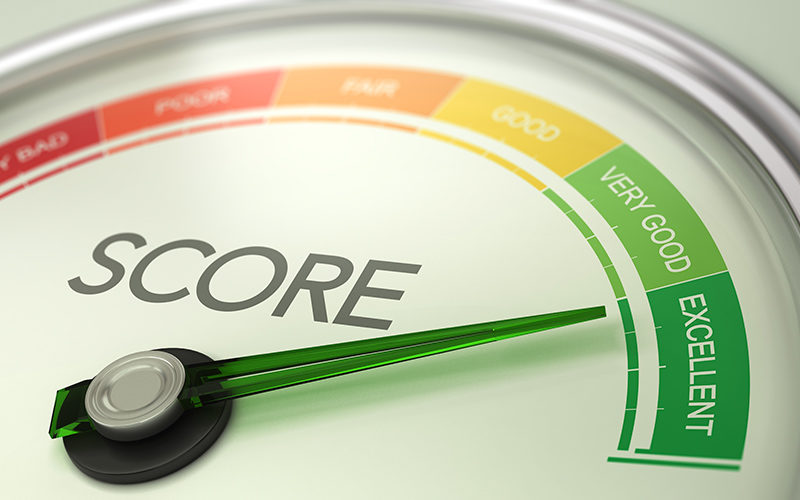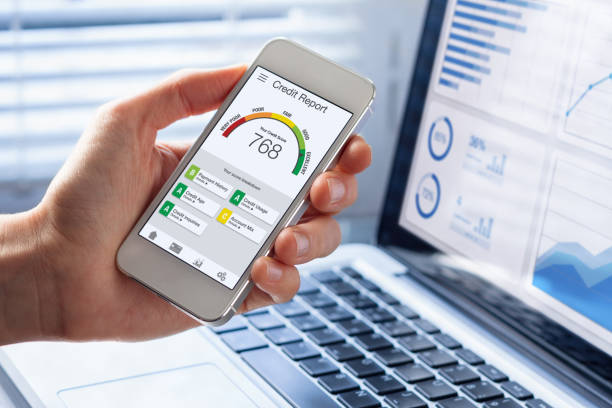In a broad sense, "Amounts owing" refers to the overall debt you owe. Your credit score is more influenced by your credit use than your debt load. When a large portion of a person's available credit is being used, this may indicate that they are overextending themselves and are more likely to miss or make late payments. How close your loan balance is to the total loan amount also affects your credit score. Your credit score will benefit if you pay off your loan obligations. Your credit score and ability to get authorized for new credit cards, loans, and an increase in your credit limit are negatively impacted by having a lot of debt, particularly significant credit card debt. Even though your debt-to-income ratio is minimal, you can still be turned down if your debt negatively affects your credit score.
Credit Scores

Your credit score determines how much credit lenders are willing to extend to you. A credit score bureau will give you a rating based on how you have managed credit in the past, as well as the type and quantity of credit you presently have. In the UK, there are three major credit reference bureaus: TransUnion, Equifax, and Experian. Each uses a different methodology and scale when calculating a credit score. It is conceivable to have various credit ratings from the three credit reporting organizations. Lenders will use the credit ratings provided by these organizations to decide how much money they will give you, at what interest rate, and other factors.
What Can Affect Your Credit Score?

Your credit score is dynamic and will fluctuate over time for various reasons. Depending on your existing credit situation, it can go up or down. Your history of payments is one of the factors that will have the most influence on your credit score. Missed payments and outstanding debts, in particular, can lower your credit score, which will make it harder for you to qualify for loans. For most lenders, this factor makes up 35% of your credit score. Your credit score will be impacted by unpaid debt, especially if you already have a lot of credit. Additionally, it will be seen negatively if you utilise more than 30% of your available credit. If you have a variety of credit account types, it will also affect your credit score.
Handling Your Debt
Your credit score is impacted by how you manage debt. Your credit score will increase if you pay off your debt quickly since you'll use less available credit. Your credit score may deteriorate if you have too much debt. For instance, you will lose points from your credit score if you skip payments because you cannot pay off your obligation. Your credit score will be harmed if you choose debt settlement or bankruptcy as a solution to your debt, and it might take months or even years to repair the damage. The debt consolidation process might lower your credit score even while credit counselling won't. Opening a new account, which decreases your average credit age, can result in a penalty.
Credit Scoring
One of the misconceptions surrounding credit score development is that you need to hold a debt on a credit card to raise it. That is untrue. As you know, having an excessive credit card balance lowers your credit score. You may use a credit card without incurring debt, pay the bill monthly, and improve your credit score. The sorts of accounts you have accounted for 10% of your credit score. Your credit score is boosted by having experience with various charges, including loans and credit cards. Therefore, if you've never had a mortgage, your credit score might increase if a mortgage is added to your credit record, but taking out loans only to raise your credit score is never a brilliant idea. It may go wrong. By only taking out the loans you need, you may let your credit score grow naturally.
Debt Hurts Your Credit Score
Most individuals find it much simpler to pay off debt if they combine it on a credit card with a reduced interest rate or a special period with no interest rate. These zero or low-per-cent cards may be helpful for people who want to consolidate credit card debt and chop down that balance entirely before the promotional period ends. However, even if you've shifted the debt to a special zero or lower percentage card, leave all of your credit card balances active. Consider cutting the physical cards up if you don't want to be tempted to use them, but keeping the account open will improve your aggregate utilization.







